
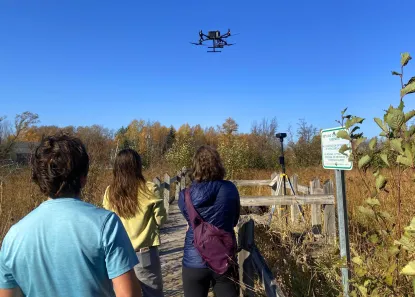
The Sky is the Limit
With a degree in one of our programs, you may find positions across the country that help sustain the environmental, economic, and social aspects of our communities. The sky’s the limit in the different kinds of work settings—from corporate to not-for-profit, from national organizations to local municipalities. Starting salaries are contingent upon job title, geographic location, and the individual applicant’s work experience and initiative.
The Bureau of Labor Statistics (BLS) projects an above-average growth (5–9% increase) for jobs in environmental fields over the next decade. EEGS faculty and courses will helps students develop their skills and knowledge and prepare to apply for meaningful work that fits their passion.
As many of our current students will probably tell you, the best thing about being an EEGS major is the fieldwork. You might go on a camping trip to the Keweenaw Peninsula to study geologic formations. Perhaps you’d like to study abroad? Our professors have led field trips to Scotland, Sweden, Brazil, and Cuba–exposing students to the geography of other countries. All of these experiences prepare our students for fruitful careers.
Gain an Edge
Students who have declared a major or minor in our department are eligible to have access to our Google Drive-based Jobs and Internships Bulletin. Be sure to contact Department Head Dr. Sarah Mittlefehldt, Executive Administrative Assistant Jana Nicholls, or a member of Team Science, our superb senior success advisors, if you wish to have access to this bulletin via your NMU-based Google Workspace account.
Do you need assistance polishing your resume or cover letter? Are you looking for guidance regarding your job or internship search? Are you preparing for your interview? If you answered "yes" to any of these questions, be sure to contact or pay a visit to NMU Career Services. Their experts will work with you to help you gain an edge. Our faculty and staff can also provide you with professional guidance.


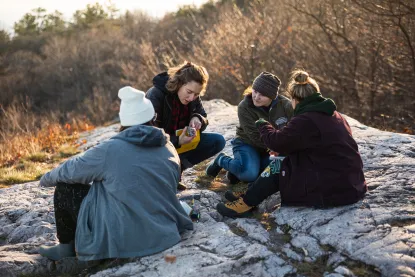
What can you do with an Earth Science degree?
Our program prepares students for employment in many careers, including, but not limited to, the following:
- Atmospheric Scientist
- Educator
- Environmental Consultant
- Geographer
- Geologist
- Geomorphologist
- Geoscientist
- Hydrologist
- Natural Hazards Scientist
- Natural Resources Specialist
- Researcher
- Resource Explorer
- Soil Scientist
- Surveyor
Employment of Earth scientists is expected to grow at a rate of about 5%, as fast as the average of all jobs. According to the Bureau of Labor Statistics, the 2021 median pay for Earth scientists was $83,000. Please recognize this varies by specialty and location of employment.
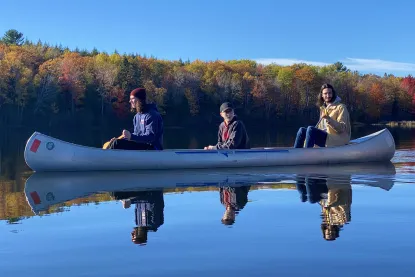
What can you do with an Environmental Science degree?
Our program prepares students for employment in many careers, including, but not limited to, the following:
- Air Quality Planner
- Alternative Energy Specialist
- Environmental Educator
- Environmental Impact Analyst
- Environmental Interpreter
- Environmental Lawyer
- Environmental Manager
- Environmental Planner
- Environmental Policy Specialist
- Environmental Scientist
- Environmental Technician
- Hazardous Materials Specialist
- Natural Resources Specialist
- Pollution Control Technician
- Public Health Officer
- Risk Assessment Specialist
- Water Resources Specialist
- Water Quality Manager
Employment of environmental scientists, depending on their occupation, is expected to grow at a rate of about 5%, as fast as the average of all jobs. According to the Bureau of Labor Statistics, the 2021 median pay for environmental scientists was $76,000. Please recognize this varies by specialty and location of employment.
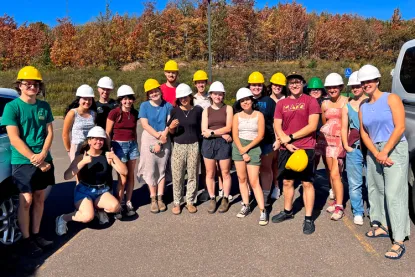
What can you do with a degree in Environmental Studies and Sustainability?
Our program prepares students for employment in many careers, including, but not limited to, the following:
- Ecotourism Guide
- Environmental Conservation Officer
- Environmental Consultant
- Environmental Educator
- Environmental Lawyer
- Environmental Protection Specialist
- Organic Farmer
- Park Naturalist
- Park Ranger
- Environmental Policy Expert
- Recreational Consultant
- Resort Manager
- Sustainability Coordinator
- Sustainable Agriculture Practitioner
- Transportation Planner
- Urban Planner
- Water Conservationist
Jobs requiring the specialization and skills that our Environmental Studies and Sustainability program provides is expected to grow at a rate of about 7%, faster than the average of all jobs. According to the Bureau of Labor Statistics, the 2021 median pay for jobs requiring skills our ENSS students have was $72,000. Please recognize this varies by specialty and location of employment.
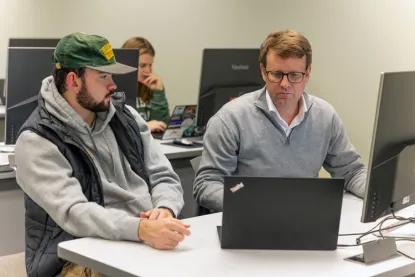
What can you do with a Geographic Information Systems and Technology degree?
Our program prepares students for employment in many careers, including, but not limited to, the following:
- Cartographer
- Engineer
- Geographer
- Geoscientist
- Landscape Architect
- Mapping Technician/Consultant
- Natural Resources Specialist
- Photogrammetrist
- Planner
- Researcher
- Resource Manager
- Surveyor
Jobs requiring skills developed in our GIS & Technology is expected to grow at a rate of about 9%, faster than the average of all jobs. According to the Bureau of Labor Statistics, the 2021 median pay for jobs requiring skills our GIST students have was $95,000. Please recognize this varies considerably by specialty and location of employment.

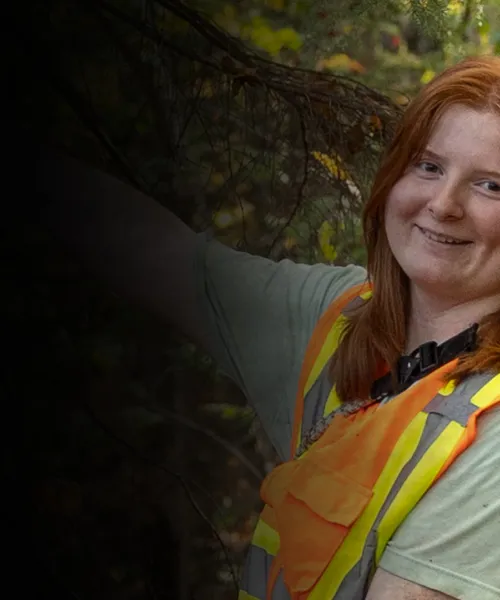

Finding your path
The Internet contains a wealth of career information for geographers, environmental scientists, and earth scientists. The following sites are recommended:
- AmeriCorps and AmeriCorps Fit Finder.
- American Association of Geographers Jobs Board
- American Geophysical Union Jobs Board
- Conservation Job Board
- Earthworks Jobs
- EcoJobs
- ECOLOG-L by Ecological Society of America
- Environmental Jobs
- GeoSearch
- GISLounge
- GIS Jobs Clearinghouse
- Great Basin Institute
- Indeed.com
- Michigan.gov Department of Environment, Great Lakes, and Energy (EGLE)
- MyGISJobs
- NMU Handshake
- Nature Conservancy
- Nature Jobs
- Ornithology Exchange (more than birds)
- TAMU Wildlife and Fisheries Sciences Board
- USAJOBS.gov